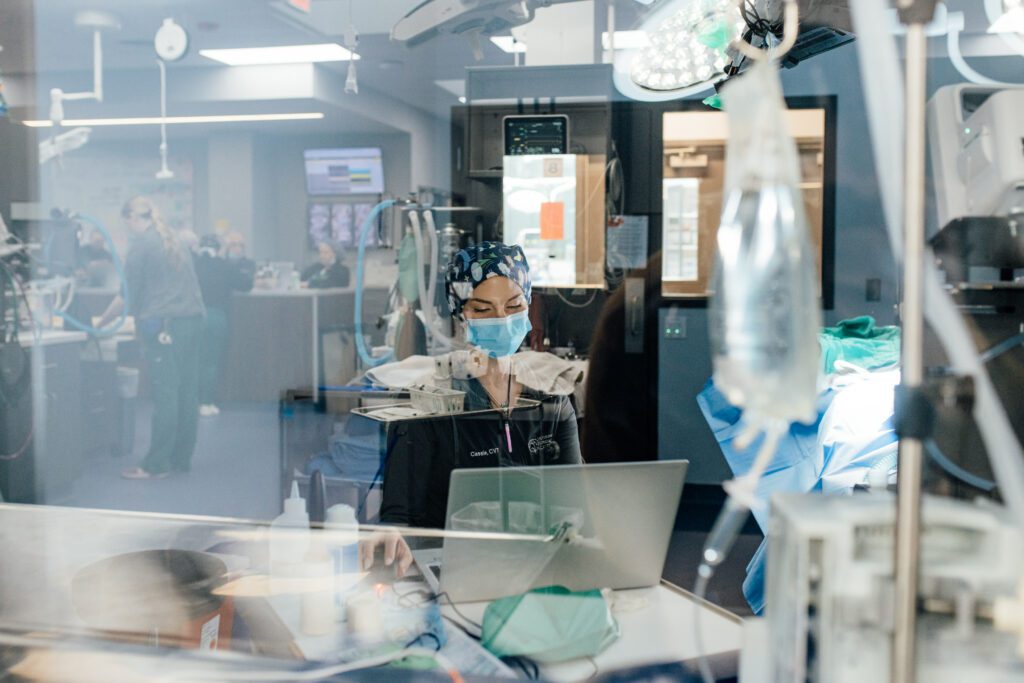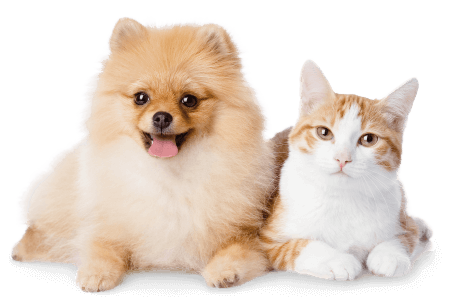Surgery – Frequently Asked Questions (FAQs)
 What should I do when my pet arrives home after its surgery?
What should I do when my pet arrives home after its surgery?
After arriving home, you should keep your pet warm and comfortable by providing a soft clean bed. Unless otherwise instructed, your pet should be given ample fresh water. You should not allow any jumping or activity that will cause excessive stretching of the surgical site.
My pet seems very sleepy. Is this normal?
Your pet has been given a general anesthetic or a sedative. These drugs can take a number of hours to wear off and may cause some patients to appear drowsy for a day or so. Over the next day or two their behavior should return to normal; however, if you are concerned, do not hesitate to contact the hospital.
Why has my pet’s foreleg or hind leg been shaved?
This is usually where we place an intravenous (IV) catheter so fluids, anesthetics or sedatives can be administered. There may also be a small pressure bandage on the leg; if so, this must be removed when you arrive home to prevent swelling of the leg unless otherwise instructed. If razor burn is present at the shaved site, you may apply some A&D ointment or aloe. Please make sure that your pet can not lick these areas and ingest the topical ointment.
My pet has developed a slight cough since the operation. Is this anything to worry about?
Your pet may have had a tube placed in their trachea (windpipe) during anesthesia – this can occasionally cause mild irritation and a slight cough. If so, the cough will diminish over the next few days; however, should it persist, contact the hospital.
What should I do to prevent my pet from licking or chewing at the surgical site?
You should have been given an Elizabethan-type collar (E-collar) which will help prevent your pet from licking or chewing, please ensure it is used. Not surprisingly, many pets find these collars strange at first and will attempt to remove them. However, after a short period, most animals will settle and tolerate wearing the collar. Once accustomed, it is better to keep the collar on permanently, rather than taking it on and off. Remember – it only takes a few seconds of licking or chewing for your pet to compromise the healing process of the surgical site which can also lead to an infection. If you feel your pet’s surgical site has been compromised in any way, please call the hospital as soon as possible. Please see our video about E-collars at vetspecialty.com/client-videos.
What is normal after surgery?
Your pet may not have a bowel movement for 24-36 hours after surgery. This could be due to a variety of reasons; your pet did not eat prior to surgery and some of the medications given prior to, during or after surgery can slow the GI tract down. If your pet seems constipated, you can offer some canned pumpkin or sprinkle Metamucil over his/her food.
You may observe decreased activity or appetite for 2-3 days. You may try feeding your pet jarred baby food, boiled chicken breast and rice, cheese, etc. until their appetite improves.
What about medications and supplements?
Non-steroidal anti-inflammatory drugs (NSAIDs) are sometimes prescribed for pain and/or inflammation. There are several types of NSAIDs your veterinarian may recommend. The most common include Carprofen (Rimadyl), Meloxicam (Metacam), Deracoxib (Deramaxx) and Piroxicam along with several others. It is very important that you never give 2 of these medications at the same time or give any non-steroidal medication with a steroid (i.e. Prednisone) unless specifically instructed by your veterinarian. The main side effects of NSAIDs are related to the gastrointestinal system. The effects range from vomiting and diarrhea to severe GI bleeding (ulceration) requiring emergency intervention. You should STOP the medications and contact your veterinarian if you notice any vomiting, black tarry stool, lethargy or loss of appetite while your pet is on NSAIDs.
Joint supplements containing Glucosamine and Chondroitin (Dasuquin) may be recommended for the rest of your pet’s life. These supplements help to provide building blocks for a healthy joint and can decrease inflammation and subsequent pain. Consistent use of these supplements may also reduce the need for NSAIDs during your pet’s lifetime.
